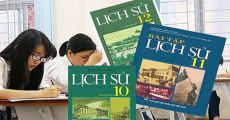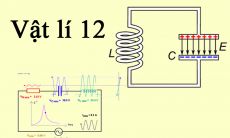Read the following passage and mark the letter A, B, C, or D to indicate the correct answer to each of the questions
BECOMING AN EFFECTIVE STUDENT
Learning how to study effectively is an essential skill for students in any discipline. There are six areas which are crucial to developing good study habits. Work on these and you will become an effective student.
Targets
Always set a realistic work target. Don't try to do too much. For example, plan to read one chapter of a book each evening rather than think about reading the whole book over the weekend. This kind of detailed, planned target is more effective than a vague commitment. It is sometimes helpful to tell your friends about your plan. This is a good incentive to keep you on target because they will know if you fail!
Rewards
Develop a system of small rewards for your work. For example, stop for a cup of coffee or tea, or listen to a favorite piece of music after one hour's study, Rewarding yourself for keeping to your work plan will make you feel good about yourself.
Timing
Make sure you choose a suitable time to study, i.e. when it is quiet and when you are most'alert. Try to make this a regular, time-tabled part of your day. If you plan to start work at a certain time, say 7 pm, do not find reasons to put off getting started. You can watch a DVD later, and your emails are not urgent!
Quantity
A large task such as researching a new topic for an essay can be daunting - so daunting, in fact, that it can be difficult to sit down and make a start. Break the larger task down into several smaller ones. For example, make a list of questions that you will have to deal with in your essay, and then approach each question separately. This makes the work more manageable.
Notes and Learning styles
The books you are studying won't always present information in a way that suits your learning style. It is, therefore, worthwhile spending time making notes and organizing them in a way that suits you best. It is also a good idea to keep your notebooks neat and well-organized. This will make it much easier to retrieve information later.
Revision
Don't leave revision until the last moment. When you set your study targets, allow regular revision time. This is much more effective than trying to cram before an exam.
Câu 21 : How does the writer think you can develop good study habits?
Hãy suy nghĩ và trả lời câu hỏi trước khi xem đáp án
Lời giải:
Báo saiLearning how to study effectively is an essential skill for students in any discipline. There are six areas which are crucial to developing good study habits. Work on these and you will become an effective student.
Câu 22 : Why is it a good idea to tell other people about your work plan?
Hãy suy nghĩ và trả lời câu hỏi trước khi xem đáp án
Lời giải:
Báo saiAlways set a realistic work target. Don't try to do too much. For example, plan to read one chapter of a book each evening rather than think about reading the whole book over the weekend. This kind of detailed, planned target is more effective than a vague commitment. It is sometimes helpful to tell your friends about your plan. This is a good incentive to keep you on target because they will know if you fail!
Câu 23 : Which of the following words is closest in meaning to the word “vague” in paragraph 2?
Hãy suy nghĩ và trả lời câu hỏi trước khi xem đáp án
Lời giải:
Báo saiunrealistic: phi thực tế
vague: mơ hồ
Câu 24 : Timing includes all of the following EXCEPT ____.
Hãy suy nghĩ và trả lời câu hỏi trước khi xem đáp án
Lời giải:
Báo saiTạm dịch:
Thời gian bao gồm tất cả các thời gian sau NGOẠI TRỪ thời gian tốt nhất để học là 7 giờ tối.
Câu 25 : How can a complicated piece of work be made easier?
Hãy suy nghĩ và trả lời câu hỏi trước khi xem đáp án
Lời giải:
Báo saiBreak the larger task down into several smaller ones.
Câu 26 : The word “daunting” in paragraph 5 is closest in meaning to which of the following?
Hãy suy nghĩ và trả lời câu hỏi trước khi xem đáp án
Lời giải:
Báo saifrightening: khủng khiếp
daunting: làm cho sợ
Câu 27 : What is NOT the benefit of keeping good class or lecture notes?
Hãy suy nghĩ và trả lời câu hỏi trước khi xem đáp án
Lời giải:
Báo saiTạm dịch
Bạn không cần phải dành thời gian cho những cuốn sách bạn đang học.
Câu 28 : The most suitable phrase to replace the word "cram” in the last paragraph is ____.
Hãy suy nghĩ và trả lời câu hỏi trước khi xem đáp án
Lời giải:
Báo saicram: nhồi nhét
study hard in a short time: học chăm chỉ trong thời gian ngắn
Đề thi giữa HK2 môn Tiếng Anh 10 năm 2021
Trường THPT Trần Hưng Đạo











